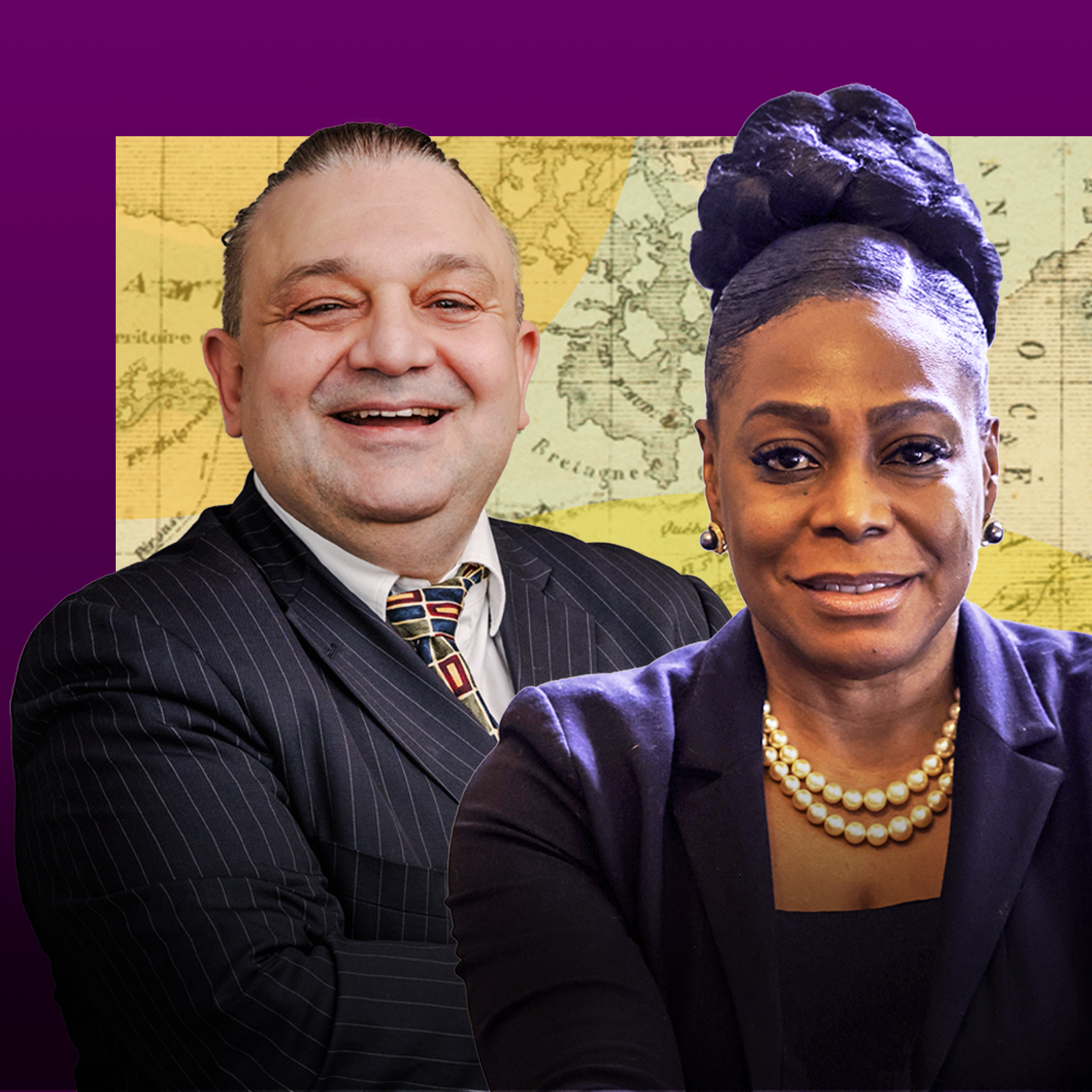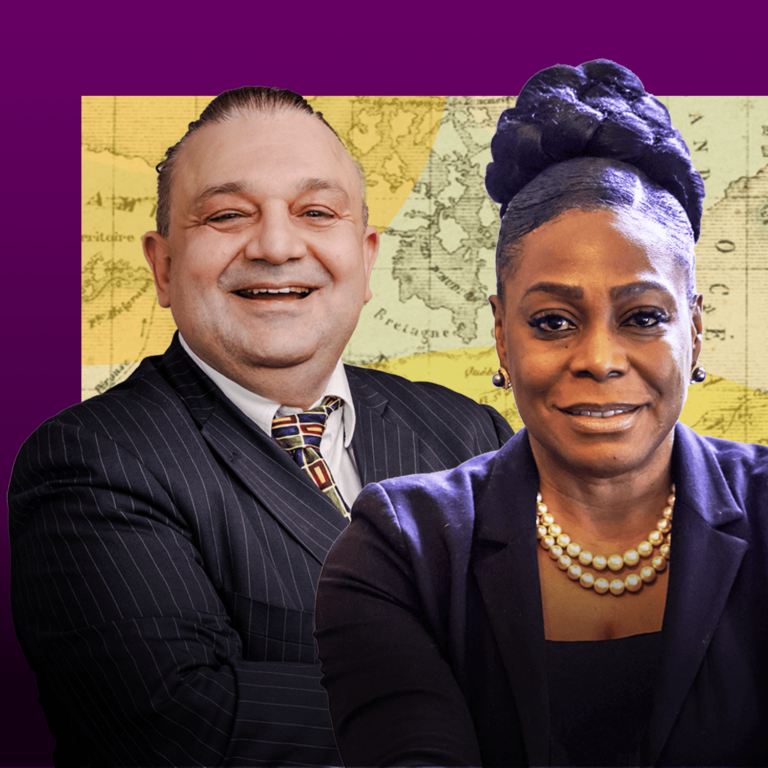
In the latest episode of the Global Health Matters podcast, host Dr. Garry Aslanian and his guests examine the forces and factors that shape the economic, social, and physical conditions that impact the health of all people.
“The global policy landscape is changing more rapidly than ever before due to the impact of pandemics, regional conflicts, and technology,” Aslanyan said at the “Global Health “Geopolitics”, Part I. .
Health AI is a nonprofit foundation headquartered in Geneva that works to establish a global regulatory framework. Its mission is to equitably reduce risks associated with artificial intelligence, while fostering investment and innovation. Through these efforts, we aim to accelerate the responsible adoption of AI and improve health outcomes around the world.
“There are social factors that actually determine whether someone is sick or not,” says Baptista Leite. “In most places around the world, if not everywhere, we don’t have a health care system, we have a disease system. We have a broken model that increases costs and increases disease.
“All healthcare workers are burnt out, they’re in a rat race, they’re like hamsters on a wheel, they just run and run and get nowhere, and the system is set up for them. It seems like we’re actually going backwards because of this.”More and more people are actually getting sick. ”
Global cooperation and monitoring
ask Aslanyan, Baptista Leite and Yodi Alakija, co-chair of the African Union Africa Vaccine Distribution Alliance, part two.
- What lessons have we learned during and after the pandemic that can guide us moving forward?
- What are the key skills and understandings that global health professionals need to better understand and navigate the geopolitical environment that impacts their programs and research?
- Has there been progress towards giving actors from the Global South a more influential role at the table, and do current geopolitical tensions help or hinder this process?
Mr. Baptista Leite underlined the importance of global cooperation in pandemic prevention, stressing the importance of learning from past mistakes and improving coordination. He stressed that initiatives like COVAX and the ACT Accelerator are important but flawed attempts at equitable vaccine distribution. Still, he says the focus should be on learning from these experiences and putting better procedures in place to prevent future pandemics.
He said the key to this effort is to agree on basic concepts and strengthen monitoring mechanisms with independent oversight to support organizations like the WHO.
“It’s not a question of taking away rights or sovereign leadership from any country. We work together,” says Baptista Leite. “We need strong oversight mechanisms, perhaps independent ones, that strengthen the role of organizations like the WHO, which serves as the main normative body for health at the global level.”
Baptista Leite also advocates for early warning systems similar to those used for pandemics to be implemented with AI to detect and respond to negative global impacts. He said Health AI will help with certification for regulatory bodies, allowing them to validate AI tools and continue to monitor their impact in their own communities.
“If something goes wrong, if there is a negative impact, if there is an unintended impact of artificial intelligence in a country, we want everyone to raise the red flag immediately,” said Baptista Leite. he says. “We live in an era of algorithmic colonization, or what some might call digital colonization, meaning that many Global North organizations are essentially deploying AI-driven or AI-generated technologies to low-income countries. and middle-income countries. They are extracting data without oversight. In some countries, governments are paying these companies to do this, and they are You’re basically taking this gold mine away from the country.
“So this is a new form of colonization that I think will ultimately lead to social unrest if we don’t address it quickly, especially in sensitive areas like health and medical data. ” he continued. “Research shows that if there is a symbiotic relationship between machines and humans, we can leverage health outcomes in ways never before done toward a vision of health and well-being for communities, including the people we live in today.” We show what can be done, in low-resource settings.”

geopolitical literacy
The African Union’s Alakija is a staunch advocate for women’s equality and an African voice in decision-making. She and Aslanjan touch on her three key points related to the geopolitics of health. It highlights the importance of investing in building alliances and common understanding, that even alliances born of adversity can build global health solidarity, and that the rhetoric of “decolonization” That is, it should be reconfigured. Efforts to restore the balance of power.
Alakija emphasizes that everyone working in the medical field must have a basic understanding and training in geopolitics.
“We need to talk more pragmatically about the aspects needed to implement policy, many of which often involve complex political considerations,” Alakija says. “This understanding is essential for effectively advocating and implementing health interventions and educational developments in the appropriate dimensions in different geopolitical contexts.
“We also need to understand that the geopolitical landscape is constantly changing, so global health professionals themselves must be adaptable and flexible,” she continues. “We must be prepared to change our voices, strategies and approaches in response to changing political dynamics.”
Listen to previous episodes of Dialogues on Health Policy Watch.
Image credit: Global Health Matters Podcast.
Combating the infodemic in health information and supporting health policy reporting from the Global South. Our growing network of journalists in Africa, Asia, Geneva and New York connects the dots between local realities and larger global debates with evidence-based, open-access news and analysis. To donate as an individual or organization, click here with PayPal.


